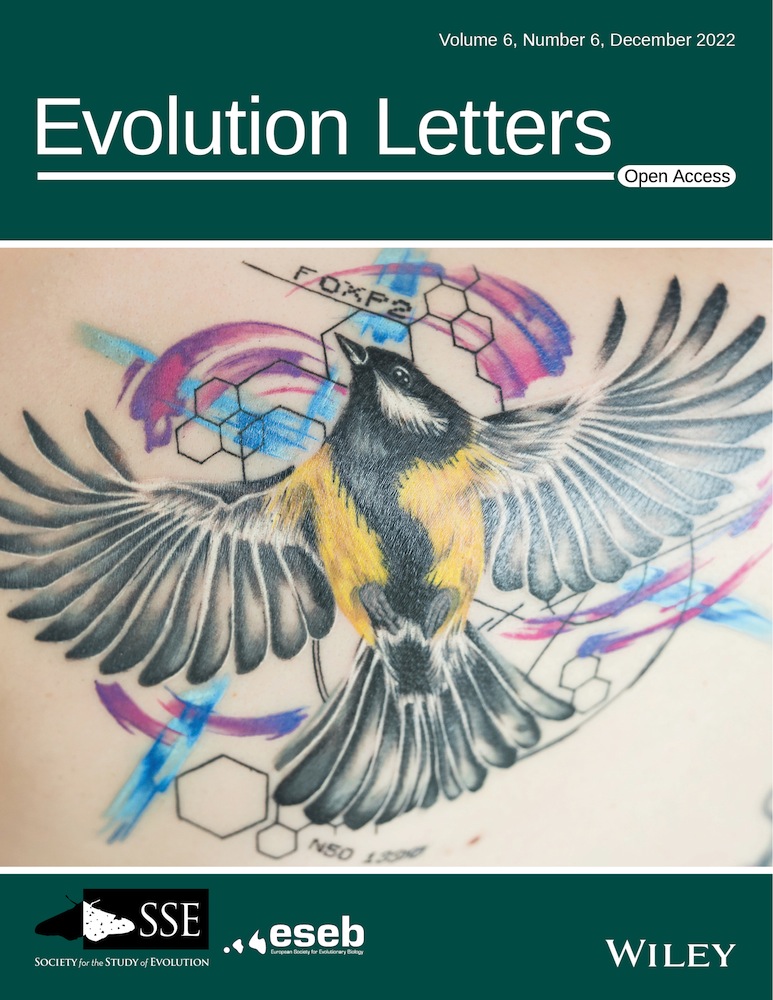A conceptual framework for understanding stress-induced physiological and transgenerational effects on population responses to climate change
IF 3.4
1区 生物学
Q2 EVOLUTIONARY BIOLOGY
引用次数: 0
Abstract
Abstract Organisms are experiencing higher average temperatures and greater temperature variability because of anthropogenic climate change. Some populations respond to changes in temperature by shifting their ranges or adjusting their phenotypes via plasticity and/or evolution, while others go extinct. Predicting how populations will respond to temperature changes is challenging because extreme and unpredictable climate changes will exert novel selective pressures. For this reason, there is a need to understand the physiological mechanisms that regulate organismal responses to temperature changes. In vertebrates, glucocorticoid hormones mediate physiological and behavioral responses to environmental stressors and thus are likely to play an important role in how vertebrates respond to global temperature changes. Glucocorticoids have cascading effects that influence the phenotype and fitness of individuals, and some of these effects can be transmitted to offspring via trans- or intergenerational effects. Consequently, glucocorticoid-mediated responses could affect populations and could even be a powerful driver of rapid evolutionary change. Here, we present a conceptual framework that outlines how temperature changes due to global climate change could affect population persistence via glucocorticoid responses within and across generations (via epigenetic modifications). We briefly review glucocorticoid physiology, the interactions between environmental temperatures and glucocorticoid responses, and the phenotypic consequences of glucocorticoid responses within and across generations. We then discuss possible hypotheses for how glucocorticoid-mediated phenotypic effects might impact fitness and population persistence via evolutionary change. Finally, we pose pressing questions to guide future research. Understanding the physiological mechanisms that underpin the responses of vertebrates to elevated temperatures will help predict population-level responses to the changing climates we are experiencing.理解应激诱导的生理和跨代效应对人口对气候变化的响应的概念框架
由于人为气候变化,生物正在经历更高的平均温度和更大的温度变异性。一些种群通过改变其活动范围或通过可塑性和/或进化来调整其表型来应对温度变化,而另一些种群则灭绝。预测人口对温度变化的反应是具有挑战性的,因为极端和不可预测的气候变化将施加新的选择压力。因此,有必要了解调节有机体对温度变化反应的生理机制。在脊椎动物中,糖皮质激素调节对环境压力的生理和行为反应,因此可能在脊椎动物如何应对全球温度变化中发挥重要作用。糖皮质激素具有影响个体表型和适应性的级联效应,其中一些效应可以通过跨代或代际效应传递给后代。因此,糖皮质激素介导的反应可能影响种群,甚至可能成为快速进化变化的强大驱动力。在这里,我们提出了一个概念框架,概述了由于全球气候变化引起的温度变化如何通过糖皮质激素在代内和代间的反应(通过表观遗传修饰)影响种群的持久性。我们简要回顾了糖皮质激素生理学,环境温度与糖皮质激素反应之间的相互作用,以及糖皮质激素反应在代内和代间的表型后果。然后,我们讨论了糖皮质激素介导的表型效应如何通过进化变化影响适应性和种群持久性的可能假设。最后,我们提出了一些紧迫的问题来指导未来的研究。了解支撑脊椎动物对高温反应的生理机制,将有助于预测种群对我们正在经历的气候变化的反应。
本文章由计算机程序翻译,如有差异,请以英文原文为准。
求助全文
约1分钟内获得全文
求助全文
来源期刊

Evolution Letters
EVOLUTIONARY BIOLOGY-
CiteScore
13.00
自引率
2.00%
发文量
35
审稿时长
10 weeks
期刊介绍:
Evolution Letters publishes cutting-edge new research in all areas of Evolutionary Biology.
Available exclusively online, and entirely open access, Evolution Letters consists of Letters - original pieces of research which form the bulk of papers - and Comments and Opinion - a forum for highlighting timely new research ideas for the evolutionary community.
 求助内容:
求助内容: 应助结果提醒方式:
应助结果提醒方式:


